UNRCPD and the Government of Nepal convene an Informal Regional Meeting to discuss Lessons Learned and Opportunities from the Progressive Harmonization of Small Arms Control and Women, Peace and Security
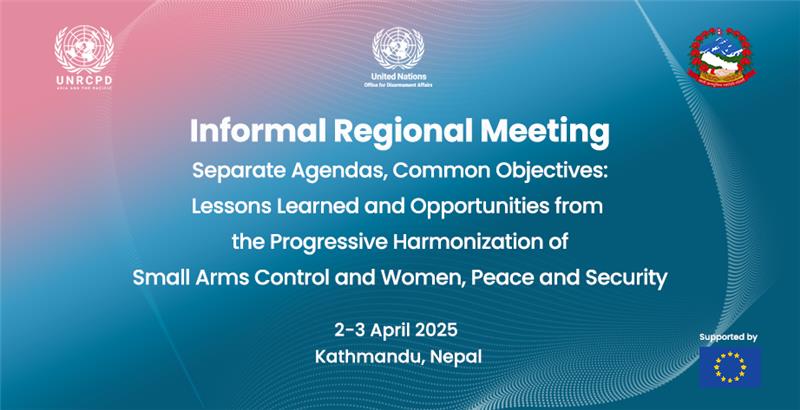
UNRCPD and the Government of Nepal convene an Informal Regional Meeting to discuss Lessons Learned and Opportunities from the Progressive Harmonization of Small Arms Control and Women, Peace and Security
On the occasion of two important anniversaries—30 years since the adoption of the Beijing Declaration and 25 years since the passage of UN Security Council Resolution 1325—Kathmandu served as the centre of an important regional dialogue. These milestones offered renewed momentum to advance the Women, Peace and Security (WPS) agenda and arms control frameworks as interconnected pillars of human security. The United Nations Regional Centre for Peace and Disarmament in Asia and the Pacific (UNRCPD), in collaboration with the Government of Nepal, convened an Informal Regional Meeting titled “Separate Agendas, Common Objectives: Lessons Learned and Opportunities from the Progressive Harmonization of Small Arms Control and Women, Peace and Security (WPS)” in Kathmandu from 2 to 3 April 2025. The meeting brought together over 80 participants, including government officials from 19 states[1], regional organizations, civil society representatives, and United Nations agencies from across Asia and the Pacific.
The event served as a unique platform for multi-stakeholder dialogue on itergrating the WPS agenda and arms control frameworks, with a focus on practical, gender-responsive approaches to reduce armed violence. At a time when multilateral efforts on disarmament are increasingly recognizing gender perspectives, the meeting offered participants an opportunity to share experiences, identify common challenges, and chart concrete paths forward.
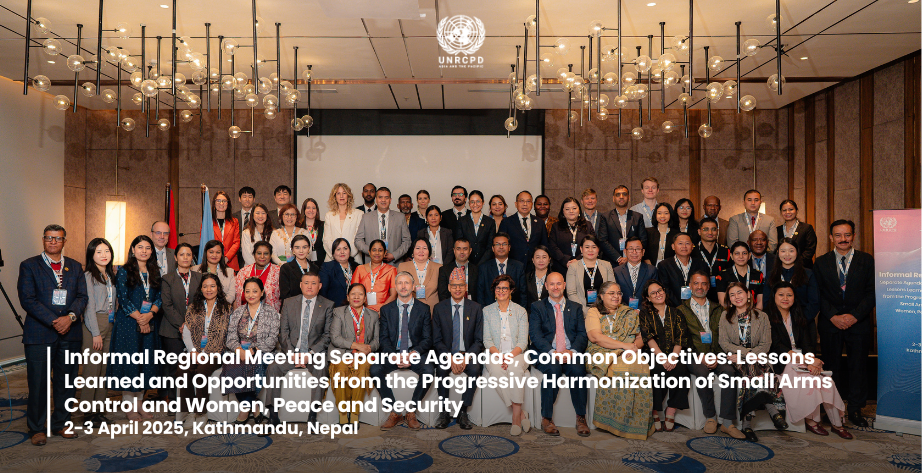
Seventy-five participants gathered at the Mercure Hotel in Kathmandu for a two-day Informal Regional Meeting.
The organization of this event is a part of UNODA’s global project, funded by the European Union (EU Council Decision 2022/65), [2] for the purpose of supporting States in the full and effective implementation of the UN Programme of Action on SALW and its International Tracing Instruments.
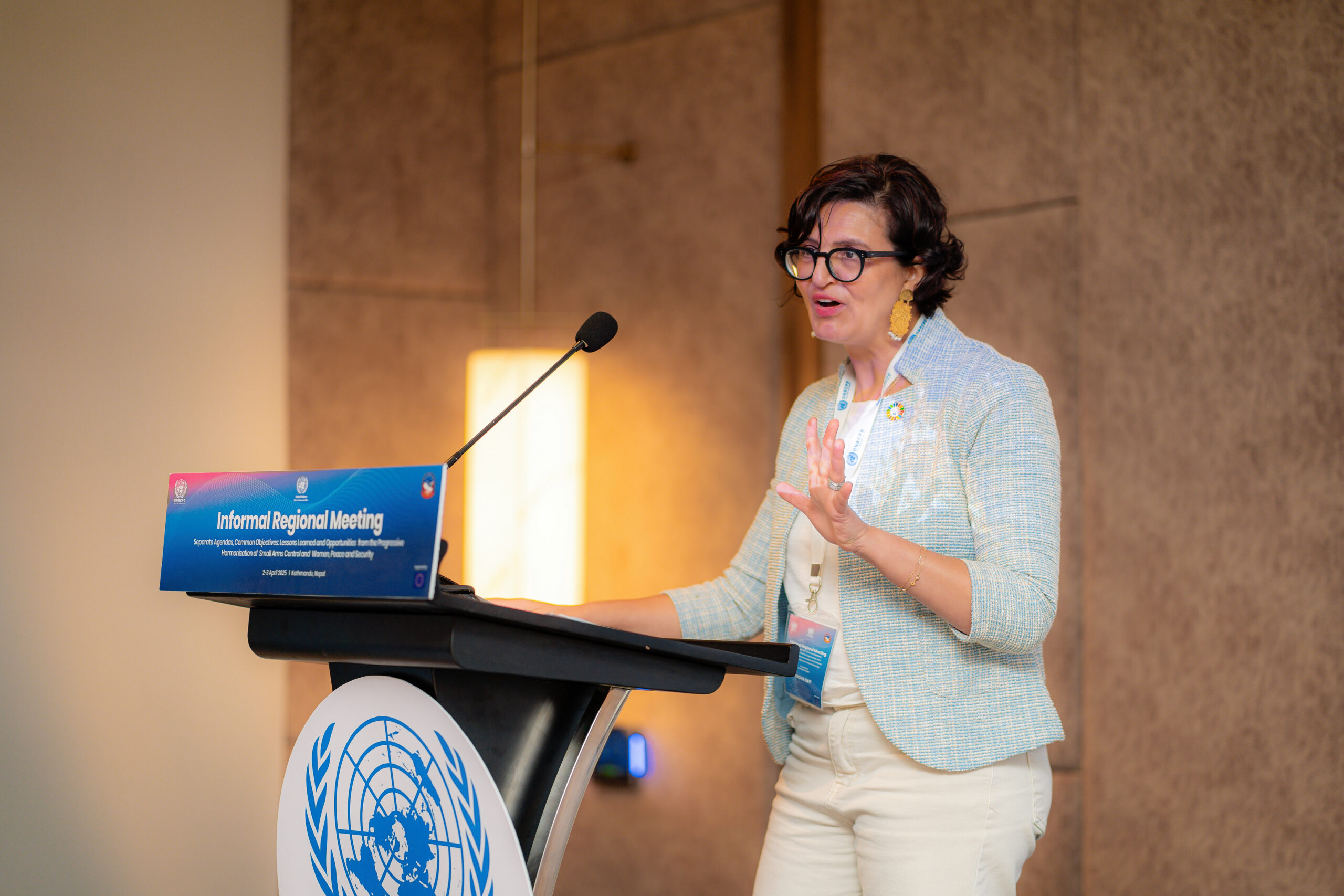
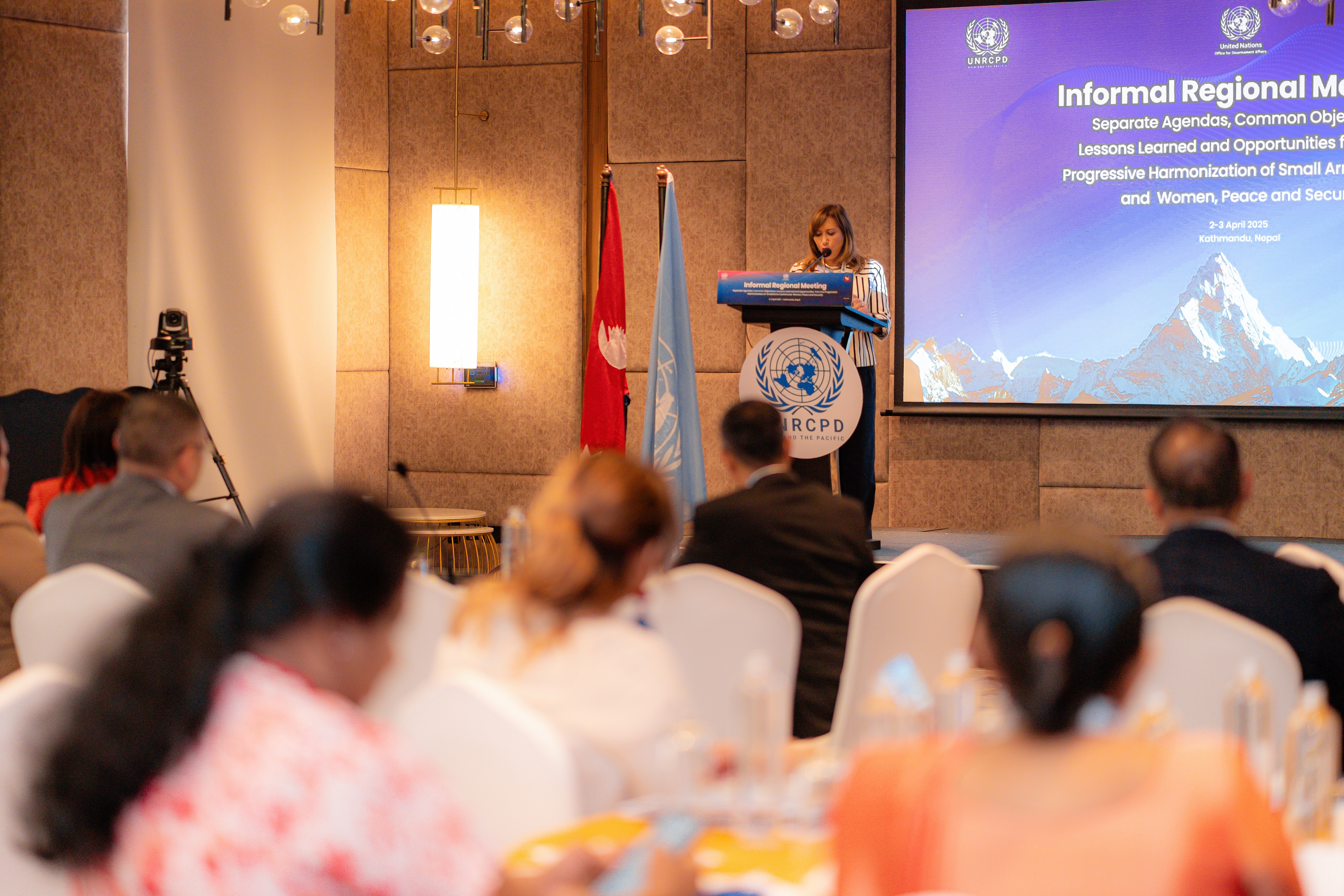
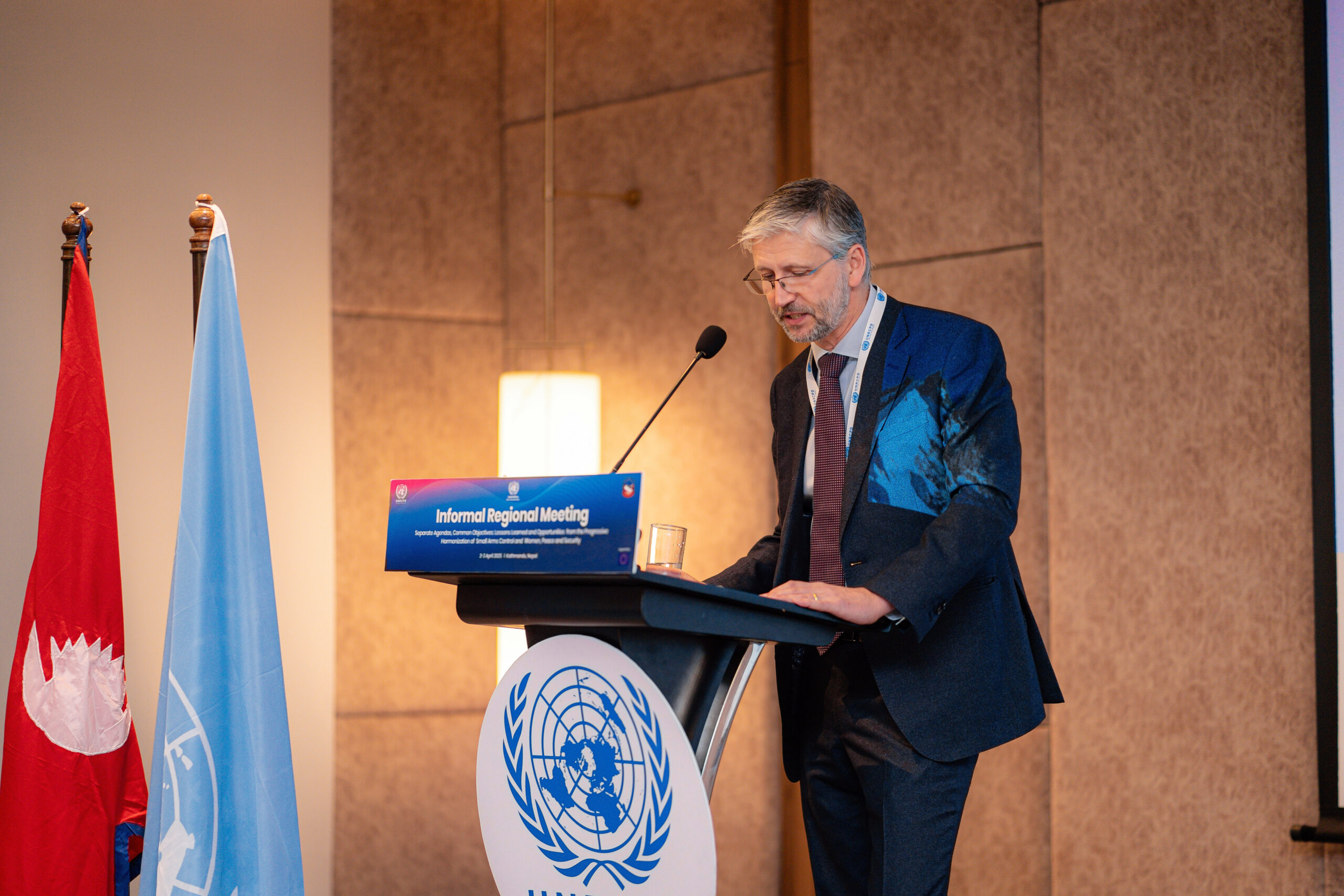
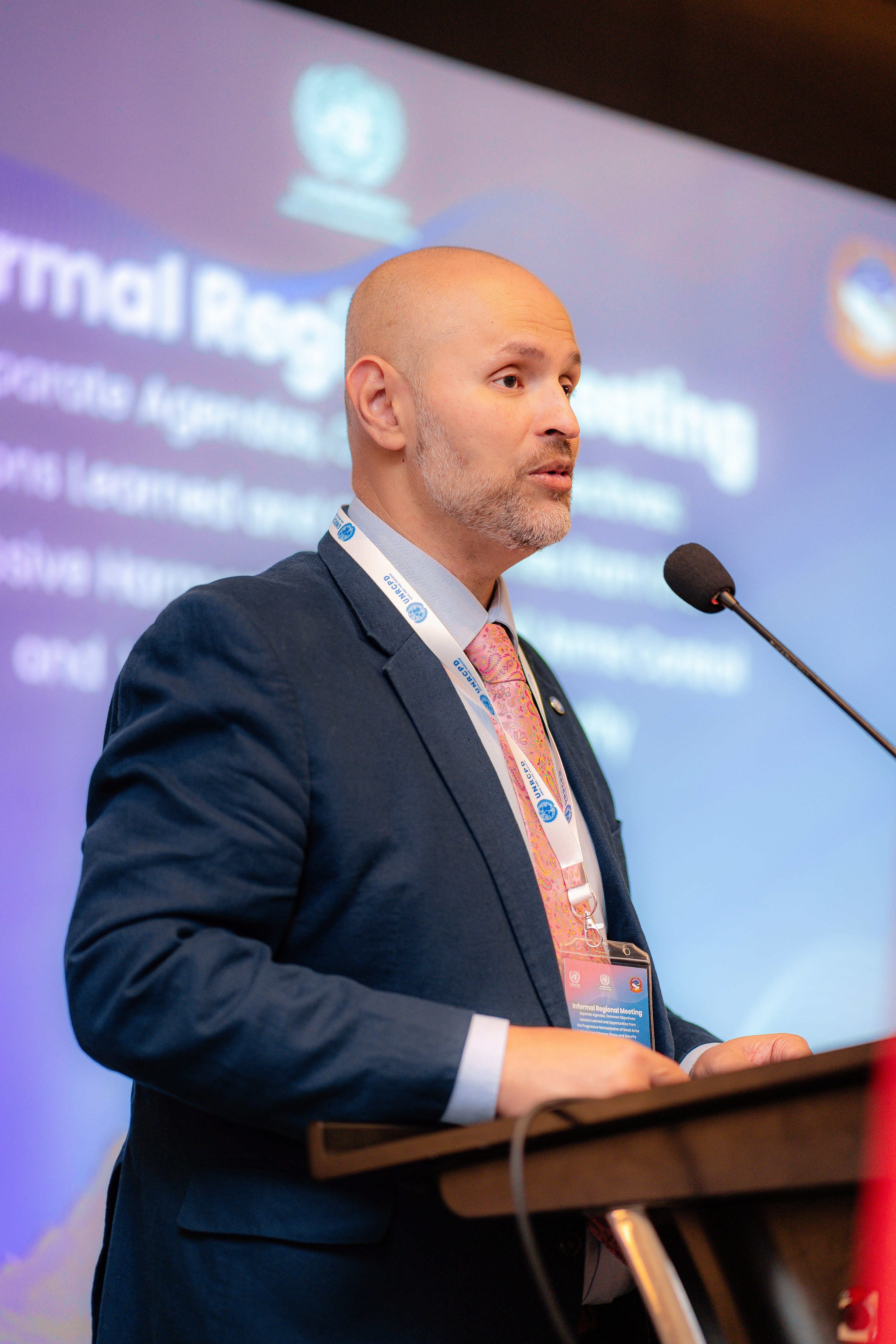
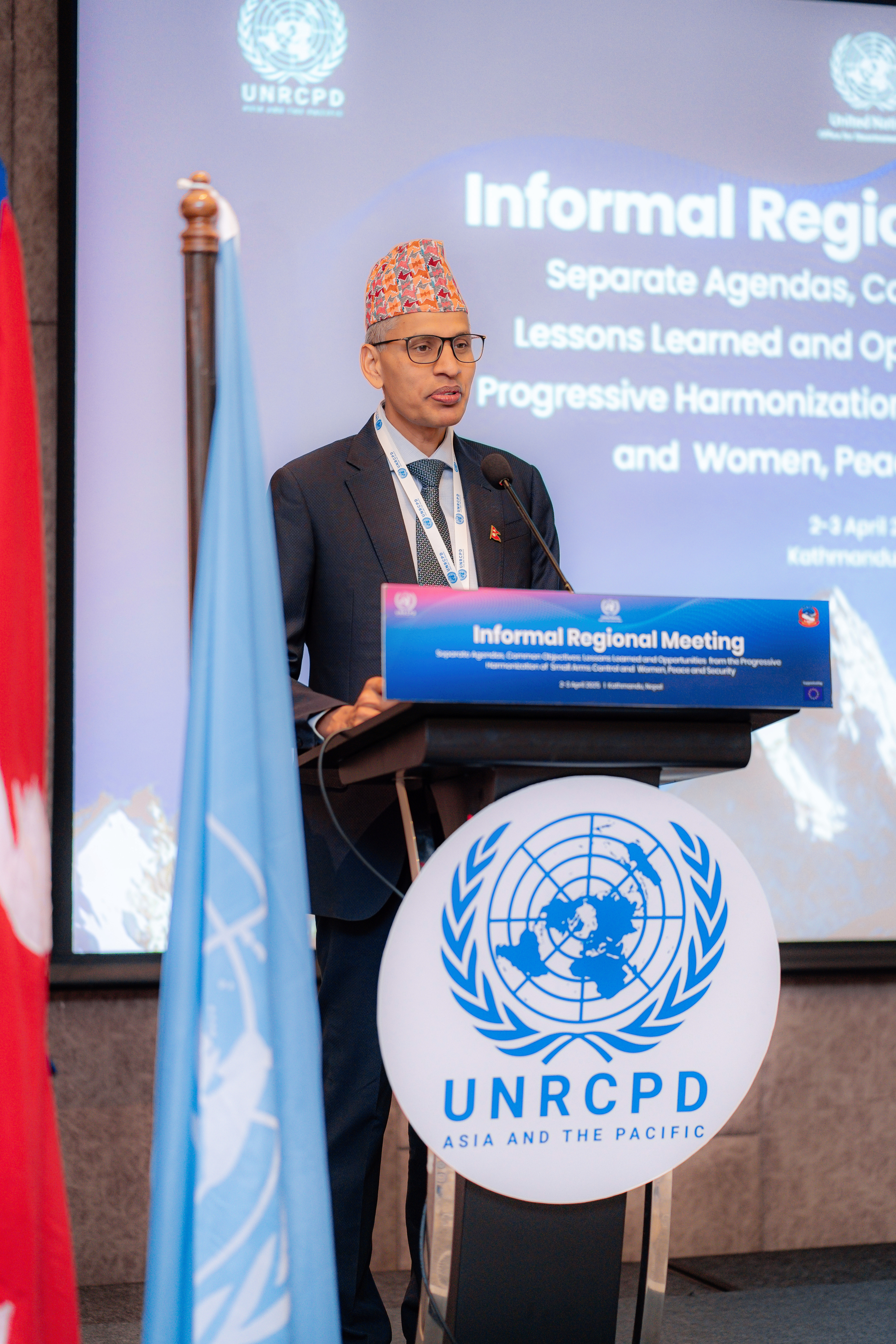
The two-day meeting opened with remarks from H.E. Ambassador Mr. Krishna Prasad Dhakal, Head of the UN, International Organizations, and International Law Division at the Ministry of Foreign Affairs of Nepal; Mr. Thomas Millar, Deputy Head of the European Union Delegation to Nepal; Ms. Radha Day, Chief of Service at the UN Office for Disarmament Affairs (UNODA); and Ms. Hanaa Singer Hamdy, UN Resident Coordinator in Nepal, setting the tone for dynamic and inclusive discussions.
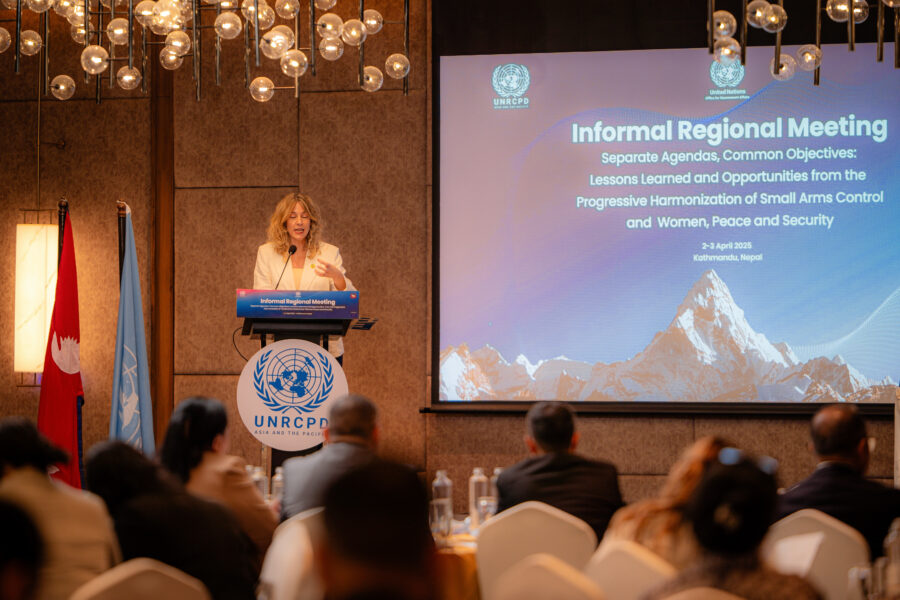
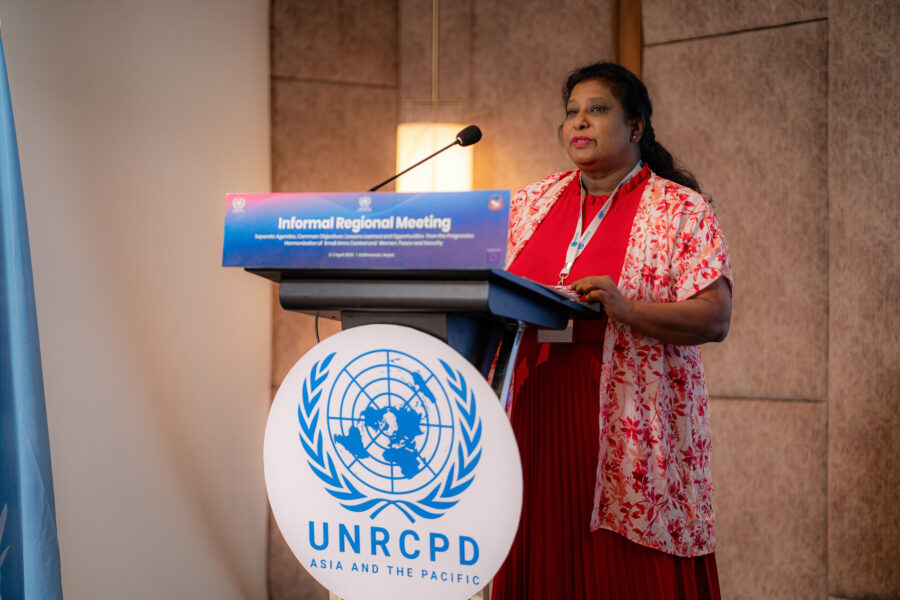
In the opening session, participants reflected on three decades since the adoption of the Beijing Declaration and 25 years of the WPS Agenda. These milestones provided a springboard for country representatives to discuss national and regional experiences in aligning their disarmament and WPS priorities, particularly through National Action Plans (NAPs). The session featured introductory remarks by Ms. Patricia Fernandez-Pacheco, Country Representative of UN Women Nepal, and Ms. Nadee Gunaratne, President of the Women’s International League for Peace and Freedom (WILPF) Sri Lanka.
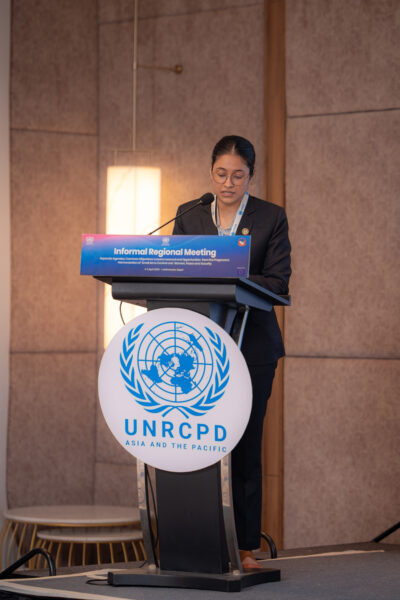
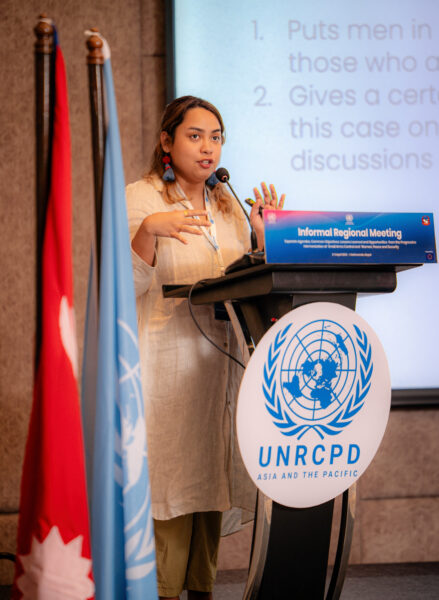
Sessions throughout the meeting explored thematic intersections between small arms control and gender equality, including the role of toxic masculinities, the gendered impact of illicit SALW proliferation, and the need for sex and age disaggregated data to inform policy and programming. Notable contributions were made by Ms. Bianca Pabotoy of International Action Network on Small Arms (IANSA) and Ms. Monalisa Hazarika from the SCRAP Weapons Project, who also served as UNODA Youth Ambassador for Disarmament. Following virtual presentations by Ms. Renata Hessmann Dalaqua, PhD, Head of Programme on Gender and Disarmament at the United Nations Institute for Disarmament Research (UNIDIR), and Mr. Callum Watson, Gender Coordinator and Programme Manager at Small Arms Survey, a special focus was placed on the Arms Trade Treaty (ATT) as a tool to prevent armed gender-based violence (GBV) and violence against women. Article 7.4 of the ATT, which specifically addresses the risk of GBV in arms transfers, was discussed in detail, with participants reflecting on national legislative experiences and risk assessment practices.
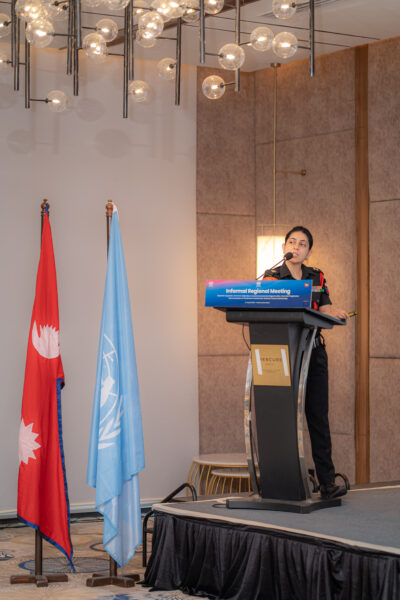
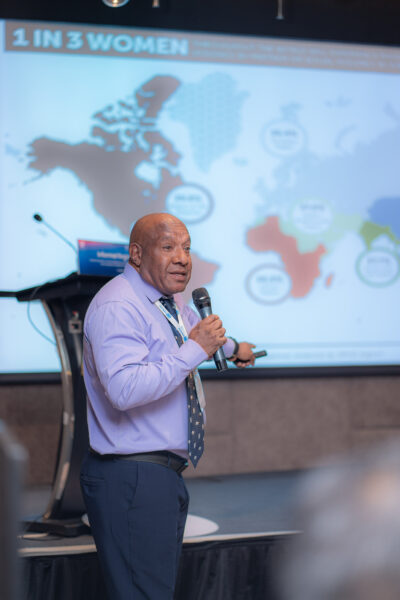
In subsequent sessions, the meeting showcased innovative national and regional practices advancing gender-responsive disarmament. Presentations by government officials from Nepal, India, the Philippines, Indonesia, Timor-Leste, Papua New Guinea, and Pakistan underscored the critical role of inclusive security policies and women’s leadership in arms control.
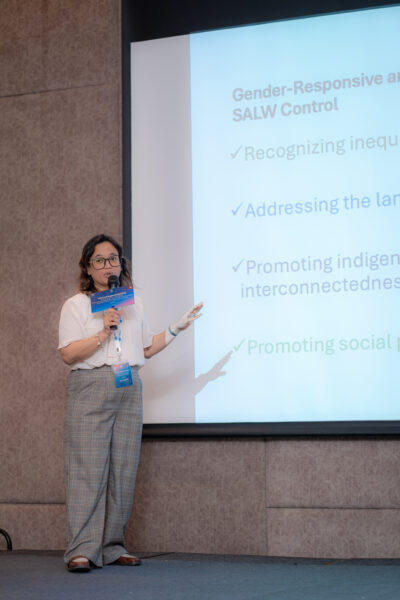
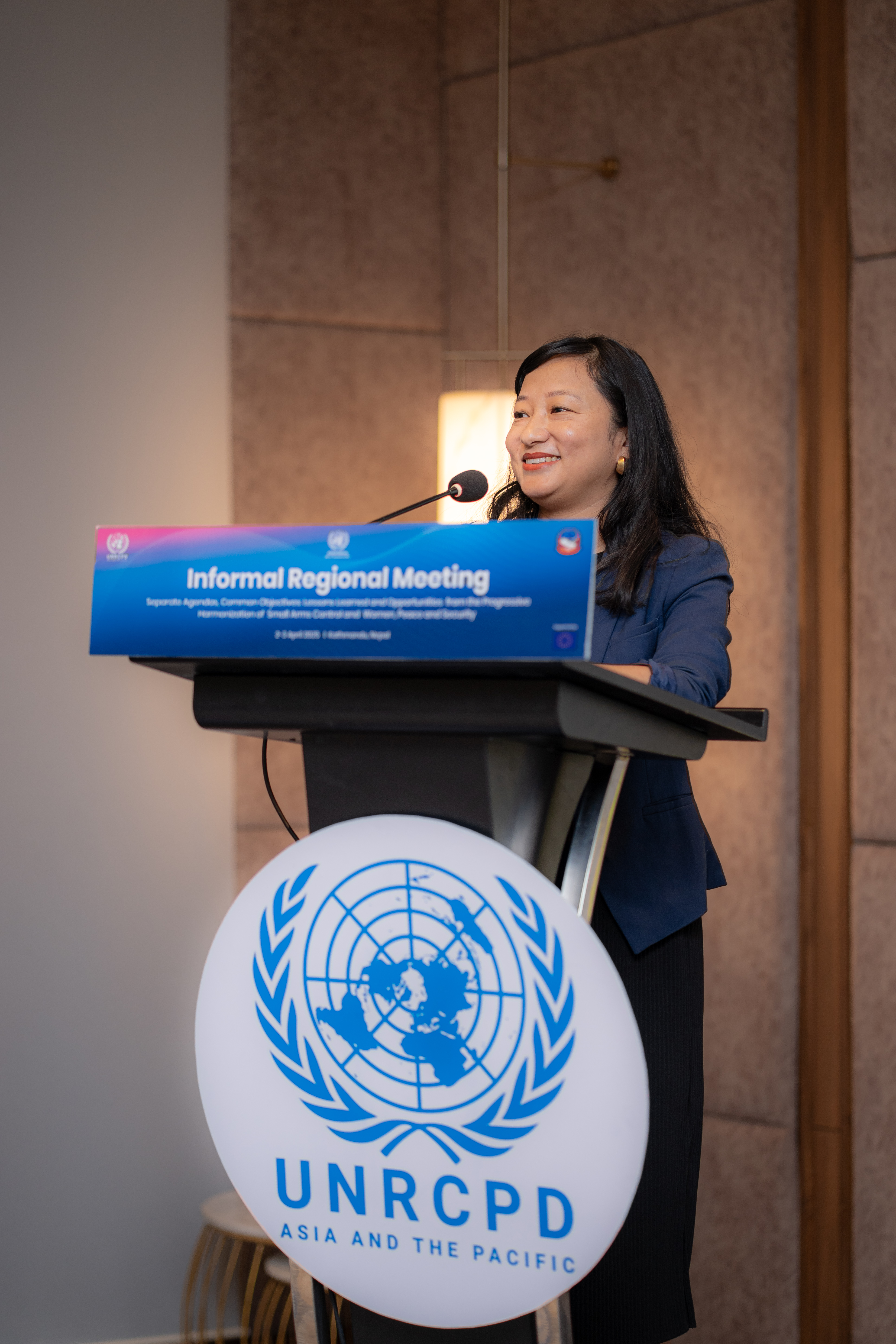
Ms. Mitzi Austero, UNRCPD Consultant and Manager at Nonviolence International Southeast Asia (NISEA), offered an additional lens by emphasizing the importance of indigenous inclusivity in disarmament. Ms. Subha Ghale, Programme Analyst at UN Women Nepal, shared national insights on the implementation of the Women, Peace and Security agenda. Mr. Sunil Babu Pant, activist and former parliamentarian from Nepal, advocated for a matriarchal approach to international relations, arguing that disarmament has long been shaped by traditional male paradigms.
Humanitarian mine action was also in focus, with Ms. Sarah Goring, Country Director for Vietnam of Mines Advisory Group (MAG), and Ms. Purna Shova Chitrakar Coordinator of Ban Landmines Campaign Nepal (NCBL) highlighting operational efforts to integrate gender into field practices and operations.
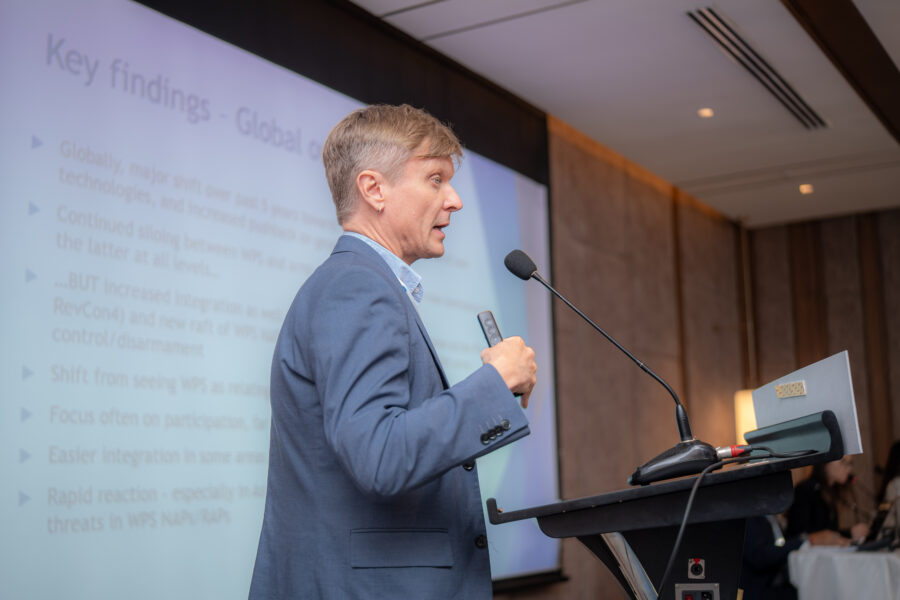
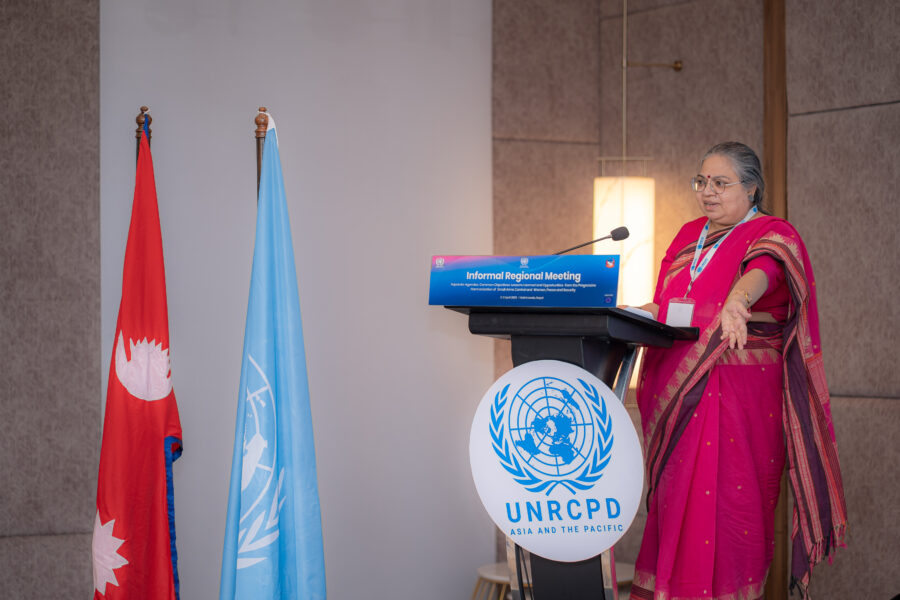
Civil society organizations such as Women for Peace and Democracy Nepal (WPDN), represented by Ms. Shobha Pradhan Shrestha, and Chaitanya – The Policy Consultancy, represented by Ms. Swarna Rajagopalan, presented on women’s activism, disarmament education, and the role of community engagement in shaping sustainable security policies. These interventions underscored the importance of cross-sectoral collaboration and the inclusion of diverse voices in the development and implementation of arms control and peacebuilding policies.
Speaking on regional cooperation mechanisms and approaches, H.E. Ambassador I Gusti Agung Wesaka Puja, Executive Director of the ASEAN Institute for Peace and Reconciliation (ASEAN-IPR), opened the session by underscoring the crucial role of regional organizations in advancing the Women, Peace and Security (WPS) agenda. Mr. Henri Myrttinen of Gender Associations International Consulting, who is currently conducting research on the level of synergies between interconnected global agendas, analyzed regional dynamics in the implementation of WPS NAPs, interpreting these efforts through the lens of emerging global trends. For instance, digital transformation and cyber dimensions of conflict, and climate-security nexus.
Dr. Chiew-Ping Hoo, Co-Founder and Senior Fellow at the East Asian International Relations Caucus, and Ms. Adriana Venny Aryani, Board Member of Lembaga Partisipasi Perempuan, highlighted both practical efforts and persistent challenges in mobilizing political commitment and fostering inter-agency cooperation. They also shed light on the negative impact that excessive military expenditures can have on social inclusion and justice.
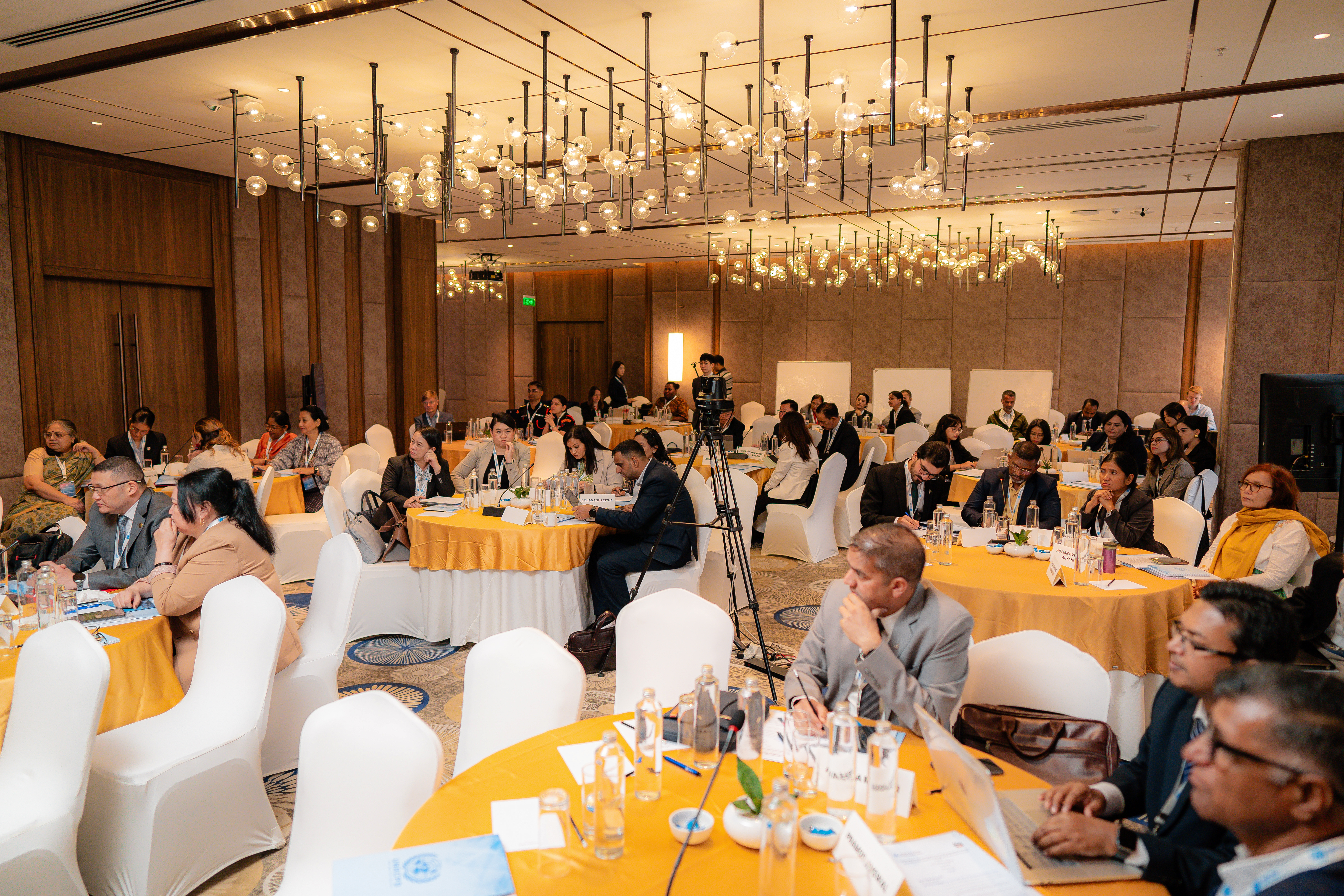
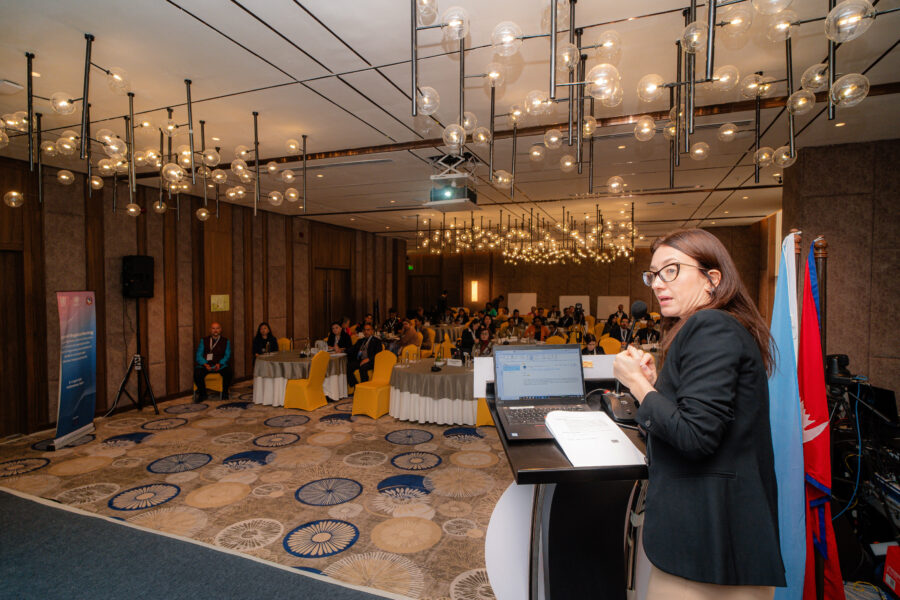
A core outcome of the meeting was a renewed commitment to foster convergence between arms control frameworks—such as the UN Programme of Action (PoA) on Small Arms and Light Weapons, the Arms Trade Treaty (ATT), and WPS-related initiatives. Participants collaboratively developed a meeting summary that will inform a forthcoming briefing note, consolidating shared insights and outlining concrete, forward-looking actions to support gender-responsive disarmament in the Asia-Pacific.
For further information, please contact Ida Scarpino, Political Affairs Officer, at the United Nations Regional Centre for Peace and Disarmament in Asia and the Pacific, via email at ida.scarpino@un.org.
[1] Australia, Bangladesh, Bhutan, Cambodia, Fiji, India, Indonesia, Japan, Kyrgyzstan, Lao PDR, Malaysia, Maldives, Nepal, Pakistan, Papua New Guinea, Philippines, Sri Lanka, Tajikistan, Timor-Leste.
[2] https://eur-lex.europa.eu/eli/dec/2022/1965/oj

